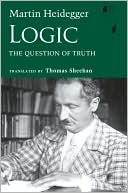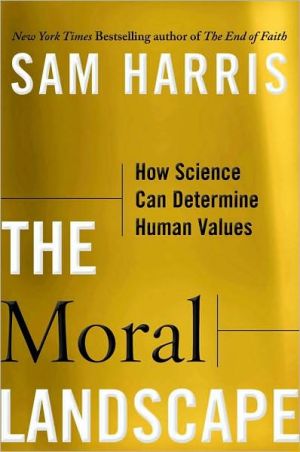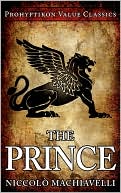Logic: The Question about Truth
Search in google:
Martin Heidegger's 1925—26 lectures on truth and time provided much of the basis for his momentous work, Being and Time. Not published until 1976 as volume 21 of the Complete Works, three months before Heidegger's death, this work is central to Heidegger's overall project of reinterpreting Western thought in terms of time and truth. The text shows the degree to which Aristotle underlies Heidegger's hermeneutical theory of meaning. It also contains Heidegger's first published critique of Husserl and takes major steps toward establishing the temporal bases of logic and truth. Thomas Sheehan's elegant and insightful translation offers English-speaking readers access to this fundamental text for the first time.
Introduction1 The first, most literal meaning of the word "logic" 12 A first indication of the concept of the subject matter of "logic" 53 A philosophizing logic and traditional scholastic logic 104 The possibility and the being of truth in general. Skepticism 155 Outline of the course. Bibliography 20Prolegomenon: The contemporary situation of philosophical logic. (Psychologism and the question of truth) 276 Psychologism: the name and the concept 297 Husserl's critique of psychologism 378 The presuppositions of Husserl's critique: a specific concept of truth as the guiding idea 459 The roots of these presuppositions 5210 Anti-critical questions. The need to take the question of the essence of truth back to Aristotle 74Pt. I The problem of truth in the decisive origins of philosophical logic, and the seedbed of traditional logic (focused on Aristotle)11 The place of truth, and [actual symbol not reproducible] (proposition) 10712 The basic structure of [actual symbol not reproducible] and the phenomenon of making sense 11413 The conditions of the possibility of [actual symbol not reproducible] being false. The question of truth 13614 The presupposition for Aristotle's interpretation of truth as the authentic determination of being 161Pt. II The radicalized question: What is truth? (A retrieval of the analysis of falsehood in terms of its ur-temporality)15 The idea of a phenomenological chronology 16716 The conditions of the possibility of falsehood within the horizon of the analysis of existence 17517 Care as the being of existence. Concern-for and concern-about, authenticity and inauthenticity 18518 The ur-temporality of care 19519 Preparatory considerations toward attaining an original understanding of time. A return to the history of the philosophical interpretation of the concept of time 20320 Hegel's interpretation of time in the Encyclopaedia 20821 The influence of Aristotle on Hegel's and Bergson's interpretation of time 21822 A preliminary look at the meaning of time in Kant's Critique of Pure Reason 22423 The interpretation of time in the Transcendental Analytic 22624 The function of time in the Transcendental Logic. A characterization of the problematic 25225 The question of the unity of nature 25826 The original a priori of all combining - the transcendental unity of apperception 26427 Time as the universal a priori form of all appearances 27528 Time as original pure self-affection 27929 The question about the connection between time as original self-affection and the "I think" 28430 Interpretation of the First Analogy of Experience in the light of our interpretation of time 28631 The schematism of the pure concepts of the understanding 29432 Number as the schema of quantity 31333 Sensation as the schema of reality 31934 Persistence as the schema of substance 32335 The time-determination of the synthesis speciosa 32836 The now-structure that we have attained: its character of referral and of making present. The phenomenal demonstrability and limits of Kant's interpretation of time 33037 Time as an existential of human existence - temporality and the structure of care. The statement as a making-present 337Editor's Afterword 345Glossaries 347Abbreviations 355








